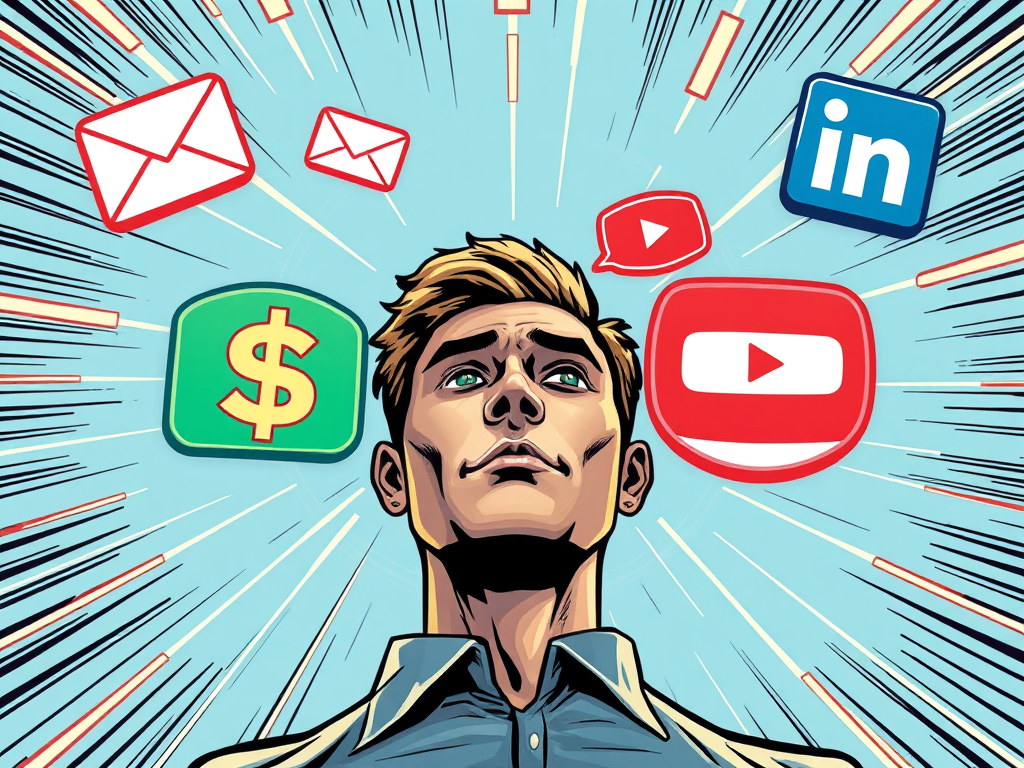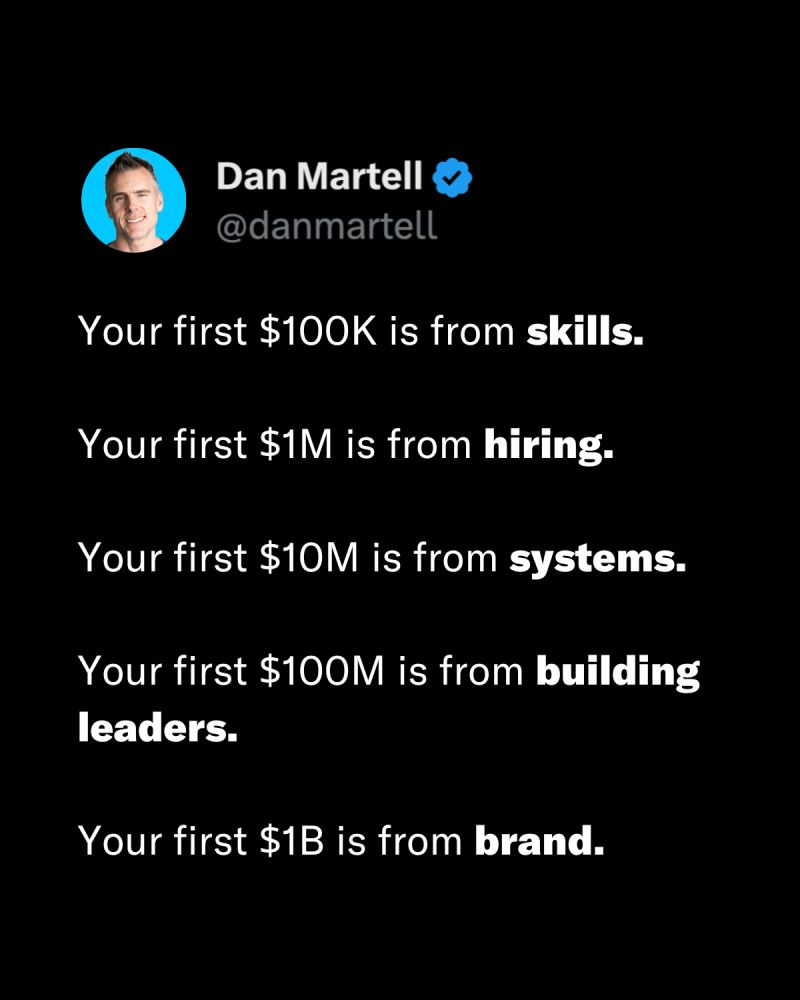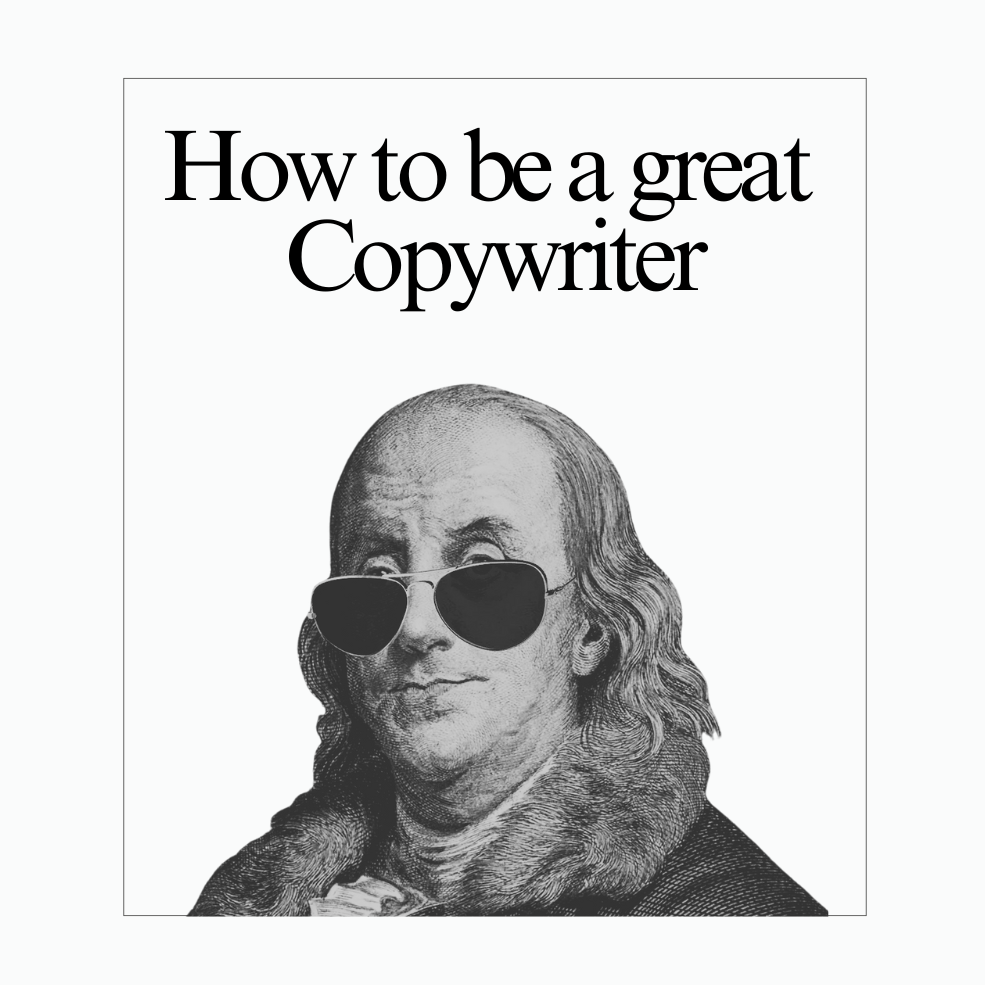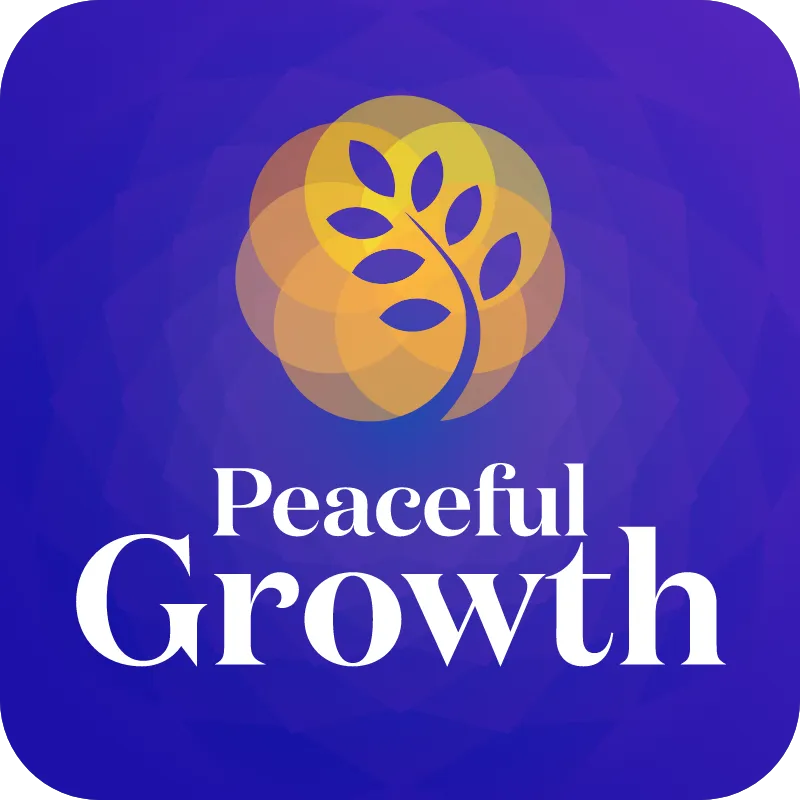Peaceful Growth: Lessons from $15M Domain Deal, The Money Ladder, Startup 101, and Why Founders Need Newsletters

Welcome to Peaceful Growth, where you will find actionable tips to grow your agency to $5M (without working overtime).
In this issue, you'll learn:
1. Story: Why the founder of HubSpot bought Chat.com for $15M (and sold it to OpenAI)
2. LinkedIn Post: The Money Ladder - $100K → $1B
3. Video: Startup 101: build (and scale) a multi-million dollar business
4. Podcast: Why every founder should have an email newsletter
This issue is different from the past. I'm trying something new. Let me what you think.
Why the Founder of HubSpot Bought Chat.com for $15M (and Sold It to OpenAI)
In 2023, billionaire Dharmesh Shah bought the domain Chat.com for $15.5M.
A year later, he sold it to Sam Altman of OpenAI for an undisclosed amount.
But the real story isn’t just about the sale.
It’s about why he bought it in the first place—without even knowing what he’d do with it.
In a recent podcast, Dharmesh shared the thought process behind this bold move.
Here’s what stood out to me (and why it’s gold for founders):
Invest in "Weird Dots"
Steve Jobs famously said:
“You can’t connect the dots looking forward, only looking backward.”
Dharmesh believed in this.
He didn’t have a plan for the domain when he bought it.
But he trusted the "dot" would connect in the future.
The takeaway?
Take bets on ideas you believe in—even if they don’t make sense yet.
When you collect enough dots, they’ll eventually connect in powerful ways.
Think Beyond Cost
Owning Chat.com gave Dharmesh an entry pass to the 'big boys club' — Elite networks, billionaire circles, high-impact conversations.
Sometimes, the value of an investment isn’t just in the asset. It’s in the doors it opens.
Click here to watch the clip (or full interview) on YouTube.
What’s your biggest “weird dot” investment? Let me know in the comments/reply.
The Money Ladder for Founders
I loved this post by author of "Buy Back Your Time" and a successful entrepreneur — Dan Martell.
He shared a brilliant concept called the Money Ladder, which outlines the journey to building a $1B brand.
My favorite takeaway?
Leveraging systems to scale to a $10M founder.
At this point, hiring more people alone won't cut it. We need to think and build systems that can scale (on autopilot).

How to Build (and Scale) a Multi-Million Dollar Business
I’ve been using Superhuman (an email app) for years—and I love it.
Rahul Vohra, CEO of the ~$825M startup, shared tons of great tips to starting and scaling successful business.
Here are my three favorites:
1. Obsess Over Core Users
Forget trying to please everyone.
Focus on the users who love your product.
Superhuman targeted those who valued speed in their email.
They also identified “somewhat disappointed” users—people close to loving the product—and removed small barriers to convert them into fans.
2. Measure the “Very Disappointed” Metric
The real test isn’t how many users you have.
It’s whether they’d be very disappointed if your product disappeared.
If fewer than 40% of users feel this way, you don’t have product-market fit.
Superhuman used this metric to guide their roadmap, improving the experience until users couldn’t live without it.
3. Make People Feel the Pain
A great product isn’t enough.
You need to make people feel the problem you’re solving.
Superhuman didn’t just launch a fast email app—they showed users how much time they were wasting with slow email.
Through PR, thought leadership, and virality, they turned their solution into a “must-have.”
Why Every Founder Should Have an Email Newsletter
I currently write 4 newsletters: Peaceful Growth (this one), Learn + Grow, WP for Enterprises and M&M (internal monthly company updates for our team).
Why am I so obsessed with email newsletters?
Because email is the most reliable and consistent marketing channel—for both personal branding and business growth.
Here’s my favorite stat:
1 email subscriber > 10 social media followers
And here’s why:
Writing helps you position yourself as a thought leader in people’s minds and build trust in your brand with customers.
If you’re not using email, you’re leaving a powerful marketing tool untapped.
Want to know more about why (and how) to start your newsletter? Listen to this podcast for the full scoop.
https://pca.st/efnbo5pq
[On a totally different note, here’s something I’m excited to share to help you sharpen your copywriting skill as a founder in 2025]
How a simple email made millions for this small business (real story)
When CD Baby, a small online music store, sent its now-famous welcome email, something magical happened.
It wasn’t just a boring “thanks for your order” message. It was fun, quirky, and personal:
“Your CD has been gently taken from our CD Baby shelves with sterilized, gloves, placed on a satin pillow, and is now being carried to our private jet…”
Customers loved it.
They shared it.
It went viral.
That playful email helped transform a small indie store into a company that sold over $100 million in music (Google it).
Why? Because great writing sticks.
It creates experiences, builds trust, and drives sales.
Not just CD Baby—companies like Groupon and Basecamp have built their success on great copywriting. It’s a 24/7 sales rep that never sleeps.
As founders, we write every day—pitches, emails, job posts, tweets. But if our words don’t connect, we lose deals, customers, and time.
Here’s a good news: WRITING IS A SKILL. You don’t “have it”, you learn it.
If you can learn only one new skill in 2025, make it writing.
I’ve spent over $10,000 on writing courses, and out of all of them, I highly recommend CopyThat—an email-based copywriting course you can complete in just 30 minutes a day for 10 days.
Check it out here: CopyThat

That’s all for now—see you in the next issue!
— Anil Gupta
P.S. Last week, I did my 2024 year review. Books, habits, health, productivity, travel, and more—I reflected on it all. You will also get to download my yearly review and planning template for free. Read here.
Did you enjoy this newsletter? Check out my other stuffs too:
- Subscribe to Learn + Grow for tips on leadership, health, and productivity to keep you at your best
- Subscribe to WP for Enterprises to learn how billion-dollar brands use WordPress
- Listen to Peaceful Growth Podcast for insights on how to grow your agency
- Hire Multidots to build or migrate your website in WordPress
- Try Google Docs style collaboration in WordPress with Multicollab
- Checkout collection of premium WooCommerce Plugins
- Feel stuck? Try 1:1 founder-to-founder mentoring. Ask anything: sales, marketing, people, growth. Pay only if I help. Schedule a free 15-min intro.
Follow me on Twitter/X: @guptaanilg
Connect with me on LinkedIn: @guptaanilg
Someone forwarded this message? Subscribe here.
In Case You Missed It
By the way, in my last issue, I shared “113 Bite-Sized Agency Growth Lessons for Busy Founders”
It is my running list. It’s organized into key areas like Strategy, Decision-Making, Sales, Marketing, People, and Finance.
No fluff. Just lessons that hit hard, worked for me, or stuck with me.


Member discussion